#Future Of Food
Text
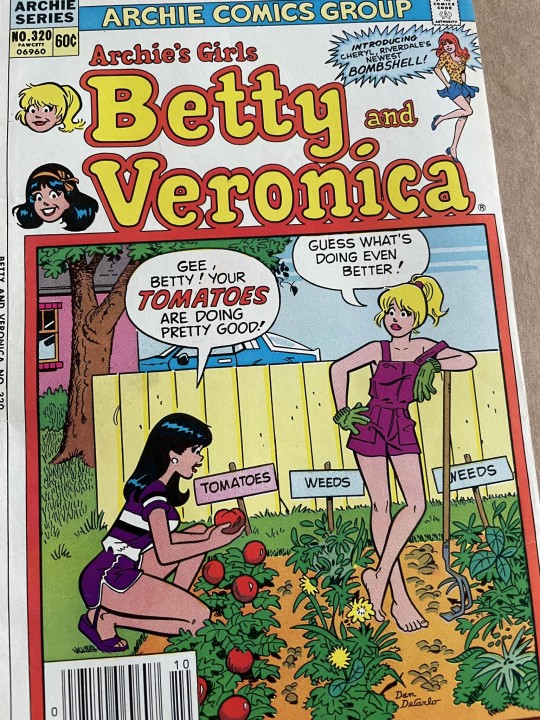
Lol exactly
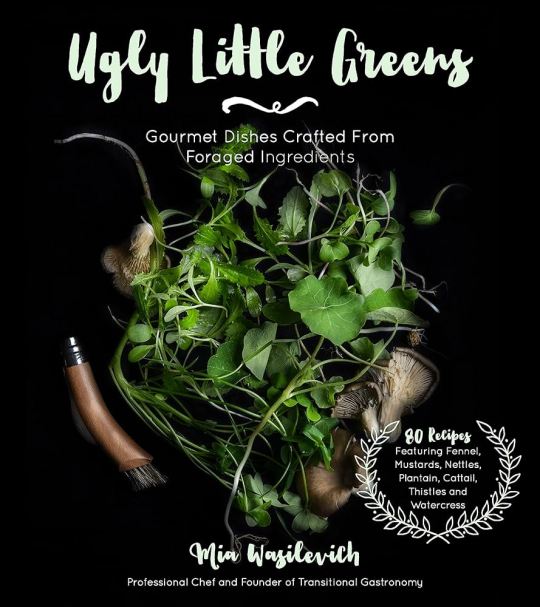
11 notes
·
View notes
Text

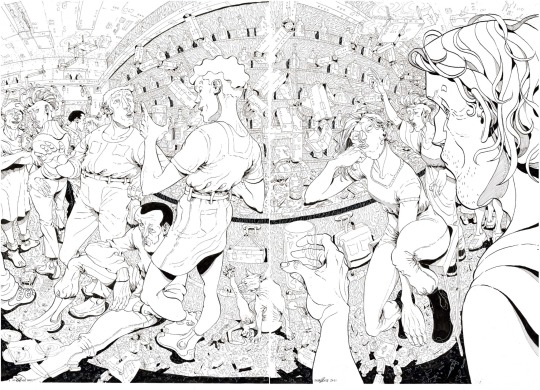


Nir Levie “Future of Food” unpublished (2021-2)
3 notes
·
View notes
Text
The Future of Food: Innovations in Sustainable Agriculture
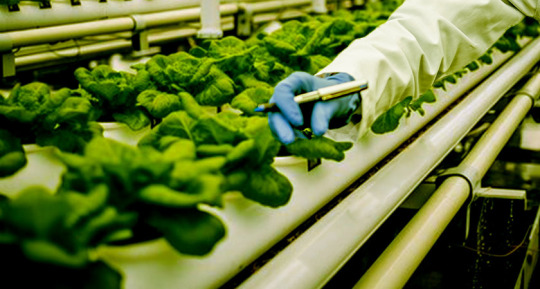
Explore the future of food through groundbreaking innovations in sustainable agriculture, where the focus is not just on cultivating crops but also on nurturing the planet. Sustainable agriculture encompasses a variety of practices aimed at minimizing environmental impact while maximizing productivity and resilience. From climate-smart farming techniques that adapt to changing weather patterns to regenerative farming methods that restore soil health and biodiversity, the future of agriculture is green and promising.
One notable innovation is vertical farming, a practice that involves growing crops in vertically stacked layers, often in controlled indoor environments. Vertical farming not only maximizes land use efficiency but also reduces water consumption and pesticide use, making it a sustainable solution for urban food production. Coupled with hydroponic systems, which grow plants without soil by delivering nutrients directly to the roots, vertical farming offers a high-tech approach to food security in densely populated areas.
Precision agriculture is another game-changer in sustainable farming, utilizing advanced technologies such as drones, sensors, and GPS to optimize resource use and minimize waste. By precisely managing inputs like water, fertilizers, and pesticides, precision agriculture boosts yields while minimizing environmental impact.
Urban agriculture is also on the rise, with more cities turning to rooftop gardens, community farms, and hydroponic setups to grow fresh produce locally. Not only does urban agriculture reduce food miles and carbon emissions associated with transportation, but it also enhances food security by providing access to nutritious food in underserved communities.
The Need for Sustainable Agriculture
By embracing sustainable agriculture practices, farmers can diminish their dependence on nonrenewable energy sources, decrease chemical usage, and conserve precious resources. Maintaining soil health and fertility holds immense significance, particularly in light of the escalating global population and food demands. Sustainability serves as a vital pillar in safeguarding our planet and invaluable resources like water and air. Constructing sustainable future and fostering eco-friendly lifestyles not only mitigates pollution but also safeguards the habitats of diverse plant and animal species. Sustainable agriculture plays a pivotal role in ensuring the production of adequate human food, animal feed, fiber, and biofuel to meet the needs of a rapidly expanding population. Furthermore, it contributes to the protection of the environment and the expansion of natural resource availability. Preserving the economic viability of agricultural systems is also paramount. The adoption of revolutionary practices has led to heightened utilization of natural resources such as land, soil, water, and fossil fuels, resulting in ecological imbalances. Therefore, sustainable methods that enhance crop and livestock yields without compromising the environment are imperative.
Climate Smart Farming: Adapting To Changing Conditions
Sustainable agriculture, encompassing practices like climate-smart agriculture (CSA), is a holistic approach to managing landscapes, including cropland, livestock, forests, and fisheries, to address the interconnected challenges of food security and climate change. This approach integrates various strategies such as planting drought-tolerant crops, diversifying crops, implementing rainwater harvesting, and improving market responses like income diversification and credit schemes. Moreover, sustainable agriculture includes adapting to climate change by developing meteorological forecasting capabilities and enhancing environmental conditions.
To combat these challenges and ensure food security, there's a growing focus on innovative farming methods such as precision agriculture, regenerative farming, hydroponics, vertical farming, and urban agriculture. These techniques aim to optimize resource use, minimize environmental impact, and increase resilience in agricultural systems.
Precision Agriculture: Enhancing Efficiency and Resource Management
Precision agriculture, a crucial component of sustainable farming practices, utilizes advanced technologies such as crop management software and specialized equipment to optimize crop production. This approach involves thorough data collection, including soil testing, plot measurement, weather pattern analysis, and crop monitoring through sensor-equipped devices placed in the fields. By leveraging smart farming techniques, which encompass all aspects of farm operations, farmers can access real-time data via mobile devices like smartphones and tablets. This data includes information on soil and plant conditions, terrain, climate, weather, resource utilization, labor, and finances.
Precision agriculture harnesses information technology (IT) to ensure that crops and soil receive precisely what they need for optimal health and productivity. By integrating precision agriculture techniques into farming practices, communities can enhance food security, mitigate environmental impacts, and promote the adoption of innovative farming methods like vertical farming, hydroponics, and urban agriculture. Moreover, precision agriculture plays a vital role in advancing regenerative farming practices, which aim to restore soil health, biodiversity, and ecosystem resilience for long-term agricultural sustainability.
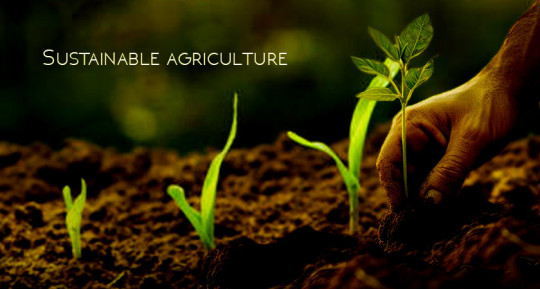
Vertical Farming: Growing Upwards For Sustainability
Sustainable agriculture practices like vertical farming aim to reduce the depletion of natural resources. By recycling irrigation water, this regenerative farming technique minimizes usage by up to 95%, promoting resource recycling and conserving water. Vertical farming is engineered for sustainable food production, mitigating the need for deforestation and limiting chemical usage. In modern vertical farming systems, crops are cultivated in clean, bio-secure environments without the reliance on pesticides, promoting regenerative farming practices. Consequently, crops grown vertically require no washing, thereby extending the shelf life of produce and reducing waste.
Agroecology: Nurturing Ecosystems for Resilient Agriculture
Agroecology, both a science and a movement, delves into the study, development, and advocacy of ecological processes vital for sustaining agricultural production. By blending traditional ecological wisdom with contemporary scientific insights, agroecology fosters the creation of more resilient and sustainable food systems. Through the cultivation of diversified agroecological systems, the resilience of agriculture is enhanced, empowering it to withstand various disturbances, including extreme weather events like droughts, floods, and hurricanes, while also bolstering resistance against pest and disease outbreaks. This holistic approach underscores the essence of sustainable agriculture, emphasizing the importance of ecological harmony and resilience in food production systems.
Regenerative Farming: Restoring Soil Health for Future Generations
Regenerative agriculture, a farming approach rooted in sustainability principles, seeks to revitalize degraded farmland while ensuring the continued livelihoods of those dependent on it. Central to regenerative agriculture is the restoration of soil health, achieved through practices that prioritize soil regeneration, biodiversity promotion, and ecosystem enhancement. This sustainable agriculture method also emphasizes the efficient use of water resources by improving soil health and its capacity to retain nutrients. Research has shown that even a modest increase of 1 percent in soil organic matter per 0.4 hectare significantly boosts water storage potential, underscoring the transformative impact of regenerative practices on sustainable agriculture.
Hydroponics: Cultivating Crops without Soil
Hydroponics, a technique for cultivating plants without soil, offers a versatile approach to sustainable agriculture. In this method, plants are nurtured in a nutrient-rich solution or a soil-free medium like sand, gravel, or coconut fiber, which is irrigated with nutrient solution. Essential components for hydroponic growth include plants, a suitable container, water, anchoring materials for the plants, nutrients, and a light source. Whether grown outdoors or indoors, hydroponic systems enable the cultivation of vegetables without relying on traditional soil mediums. Indoors, artificial lighting can accelerate growth rates. While hydroponics diverges from conventional farming practices, which rely on soil as a carrier of vital minerals and organic matter, it offers a promising avenue for sustainable agriculture by minimizing soil usage and optimizing nutrient delivery to plants.
Urban Agriculture: Cultivating Food in Cities
Urban agricultural practices encompass a diverse array of activities, ranging from cultivating food and non-food items to rearing livestock, beekeeping, and commercial floriculture. Embracing urban agriculture can contribute to building sustainable food systems by promoting localized food economies and enhancing climate resilience. Through the utilization of unused urban land for food production, urban agriculture reduces the reliance on rural agricultural land, thereby supporting sustainable agriculture practices. Notably, urban farming fosters community cohesion, environmental health, and food security, serving as key pillars of sustainable agriculture. While urban farming plays a vital role in providing food to local communities, it is essential to recognize that rural agriculture remains integral to ensuring the overall sustainability of the food supply chain.
The future of food lies in innovative approaches to sustainable agriculture, including vertical farming, precision agriculture, regenerative farming, hydroponics, and urban agriculture. These methods aim to optimize resource use, minimize environmental impact, and increase resilience in agricultural systems. Sustainable agriculture practices such as agroecology and regenerative farming focus on nurturing ecosystems and restoring soil health. Hydroponics offers a soil-free approach to crop cultivation, while urban agriculture promotes localized food economies and enhances community resilience. Overall, embracing diverse and innovative sustainable agriculture practices is essential for creating a greener, more resilient food system that benefits both people and the planet.
0 notes
Text
Plant-Based Food Market 2030 - The Plant-Based Boom: Trends, Technologies, and the Future of Food
PUNE, MAHARASHTRA, INDIA /EINPresswire.com/ — Plant-Based Food Market Explosive Growth:
The global plant-based food market is expected to reach a staggering $162 billion by 2030, according to Bloomberg Intelligence. That’s a massive increase from $29.4 billion in 2020, representing a CAGR of over 16%.
People packing organic food into eco bag, sorting plastic waste for recycling. Vector…
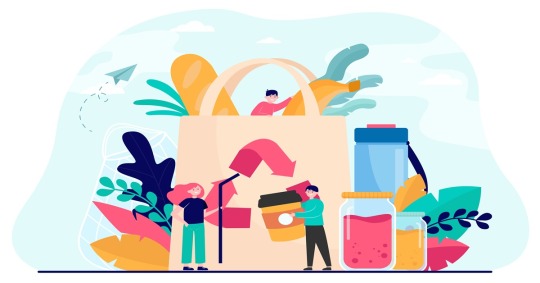
View On WordPress
0 notes
Text
getting older can be so amazing? you get more familiar with yourself. learn tips & tricks for troubleshooting your own brain. trial & error helps you build routines that minimize discomfort, maximize reward. your preferences/interests don't get set in stone, but you do find out which ones are going to stay with you in the long-term, and which ones are fun but transient joys to appreciate in the moment.
you learn that the world is so much more complex than you were taught, and that that's okay, and that there's an endless supply of things you can learn or watch or experience or think about if you want to. if you're lucky, you loosen up, stop putting so much pressure on yourself. if you're lucky, you learn to recognize that negative inner voice, and whack it with a baseball bat until it hushes up. if you're lucky, you learn to treat yourself gently, not because you are fragile but because you are worthy of gentleness. (i hope you are lucky.)
and some things will change. some things will get better. some things will get good. and maybe you start to recover from the dehumanizing stress of childhood/education. maybe you learn the power of your own autonomy. maybe you learn how to walk away from bad situations (which is a superpower even if you don't realize it yet). and you get to choose your own clothes. and your own food. and which relationships to pursue! and what you do with your free time. and with your life (but don't worry you get to choose that gradually). and that's crazy! and sometimes scary. and extraordinarily, indescribably precious.
#not a shitpost#and as long as you are alive there will be another good moment waiting for you in the future#the profound joy of your favorite foods#the incalculable luxury of waking up and lounging in bed and falling back asleep#a cold glass of water after a walk in the hot sun#petting an excited dog. a cat rubbing up against your ankle. the sight of a confused chicken#glorious these beads we string together to form our own existence#getting older means time is passing. and i hope you are passing that time in ways that make you happy#i hope you have so many moments of joy that they can be as easily counted as drops of water in the ocean
15K notes
·
View notes
Text

this is so real and never leaves me
#that one sandwich can change your life.#i will be honest i posted this solely so people could fondly reflect on delicious foods or hope for a future tasty item. And it worked#reminisce. hope. if you have not had that sandwich you will someday. isn’t that grand.
29K notes
·
View notes
Text
Meat the Future: Israel's 3D-Printed Culinary Revolution!
Israeli Company Pioneers the Future: Printing Meat!
In the bustling landscape of technological innovations, Israel has always been at the forefront. This time, it’s not about cyber-security, AI, or drones but something that touches a basic human need – food. An Israeli company has created ripples in the culinary world by introducing a groundbreaking method to ‘print’ meat. Yes, you read that…
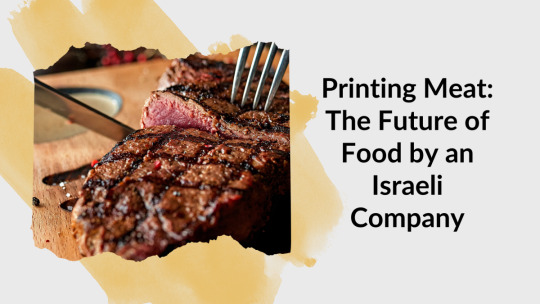
View On WordPress
#3D Printed Meat#Culinary Innovation#Eco-Friendly Cuisine#Future Of Food#Gastronomy Genius#Israeli Tech#Meat Revolution#Sustainable Eating#Tech Meets Taste
0 notes
Text
When the Basics are out of Reach: What to Do When You Can’t Buy Food Due to War, Blackout, or…
Pixabay
For many of us, buying food is a simple and routine task. We visit our local supermarket, grab the items we need, pay, and go home to prepare a meal. However, for some, this isn’t always possible. In times of war, political unrest, natural disasters, or even blackouts, purchasing food becomes an impossibility. When the basics are out of reach, it’s crucial to find other means of feeding…

View On WordPress
#effective strategy#Army#Blackout#danger#dangerous#detecting#Electricity#Family#Fire#First#Food#Future Of Food#Light#Moby#money#store#Strategy#Tips#Tips And Tricks#War#what strategy#What To Do
0 notes
Photo
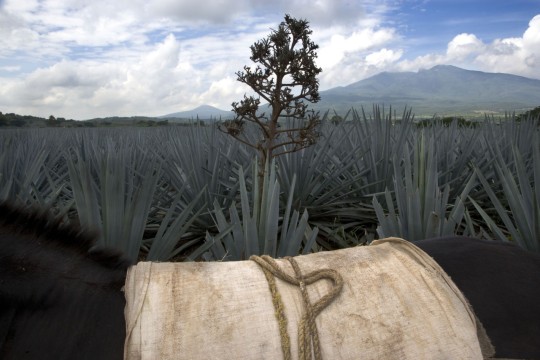
What’s the Real Cost of Mezcal?
Communities in Oaxaca, Mexico, are striving to produce mezcal sustainably—but soaring demand from across the border makes it tough.
https://atmos.earth/mezcal-oaxaca-environmental-impact/
0 notes
Text
instagram
#solarpunk#permaculture#functional supply chains#future of food#futurism#futuristic#pop tarts#recipes#Instagram
3 notes
·
View notes
Text
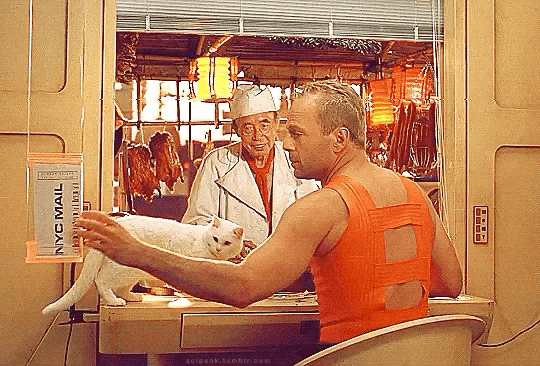

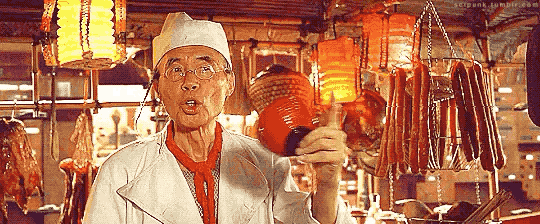
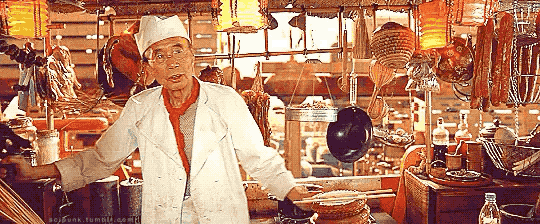


The Fifth Element (1997)
#the fifth element#90s#cult classic#retro futuristic#cyberpunk aesthetic#retrofuture#new york#retro futurism#new york city#cat#food truck#aesthetic#white cat#90s movies#chinese food#megacity#90s aesthetic#cyberpunk
2K notes
·
View notes
Text
The Benefits and Challenges of Home Cooking During the Pandemic
Overview of the impact of COVID-19 on the food industry
The COVID-19 pandemic has had a significant impact on the food industry, affecting everything from how we shop for food to how restaurants operate. The sudden shift towards social distancing and remote work has led to changes in consumer behavior, forcing the food industry to quickly adapt.
The shift towards home cooking during the…

View On WordPress
#budget-friendly#burnout#covid-19#dining out expenses#future of food#grocery shopping tips#healthier eating habits#here are some recommended tags for "the benefits and challenges of home cooking during the pandemic":#increased grocery costs#industry impact.#lack of variety#new and exciting recipes#pandemic#pantry staples#quick and easy meals#savings
0 notes
Text




my piece for @thecodywanzine! thanks to the mods who let me go completely ham and cheese on this bad boy. this one's about living longer than you ever expected and not knowing what to do with it
#they're having a leftover sale with free shipping if you want a ridiculous amount of art and merch for an insanely low price#codywan#commander cody#obi-wan kenobi#star wars#comics#codywan zine#i went kinda nuts with the sun symbolism on this one. even i feel like its hamfisted but like listen am i not going to self-indulge#if not in a shipping zine piece then where#hope and love and the sun and etc can be an. omelette. spanish omelette specifically. that you share with your fambly#food cw#its also about looking at your best friend over a table and going. i lvoe you. i love you. i want to spend the rest of my life with you#i want to see the future with you. im so glad we're both alive even though i thought we'd both be dead by now#bytebun draws#lets not talk about the way there is zero consistency in my art style. <3
2K notes
·
View notes
Text
THE GERMAN FARMERS WON
After Bringing Berlin to a complete halt, the Government have backed down on several ludicrous taxation & net zero policy impacting food production.
Of course you won’t see this on fake news MSM as they don’t wish you to know the wider narrative and/or implications of.
This however is just the battle & not the war.
#Germany#Farmers#Well Done#Food Security#Advocate for Agriculture#Support Local Farmers#No Farms - No Food#No Farmers - No Food - No Future#Like Minded People#Make Tumblr ★ Great Again
696 notes
·
View notes
Text
self-love is me resisting the urge to eat the leftovers I have in the fridge as a bedtime snack, out of compassion and adoration for future-me, who deserves to wake up in the morning and eat something delicious without having to cook it first
#self-love is also current-me cooking eggs and toast as a midnight snack instead#it's delicious and i am not so hungry and rushed that i mind taking the time to cook something yummy#and as a second act of self-care i am even doing the dishes instead of leaving them to soak overnight! i'm being so kind to my future self!#... actually no I'm gonna leave the frying pan to soak. future-me can deal with that they're the one getting delicious leftovers#food mention
3K notes
·
View notes
Text

@somerandomdudelmao I suffer from big man brainrot. I literally cannot stop thinking about him, HE'S SO HAPPY TO JUST BREATHE AND DRINK AND JUST BE ALIVE!! :'D
#He makes me sad#But also very happy#I will cry over him#If he cries over water I can't wait to see his reaction over actual food#cass apocalyptic series#future raph#rottmnt#rise raph#tmnt#art#my art
2K notes
·
View notes